Brand New Septic System Installation and Septic Tank Pump Out
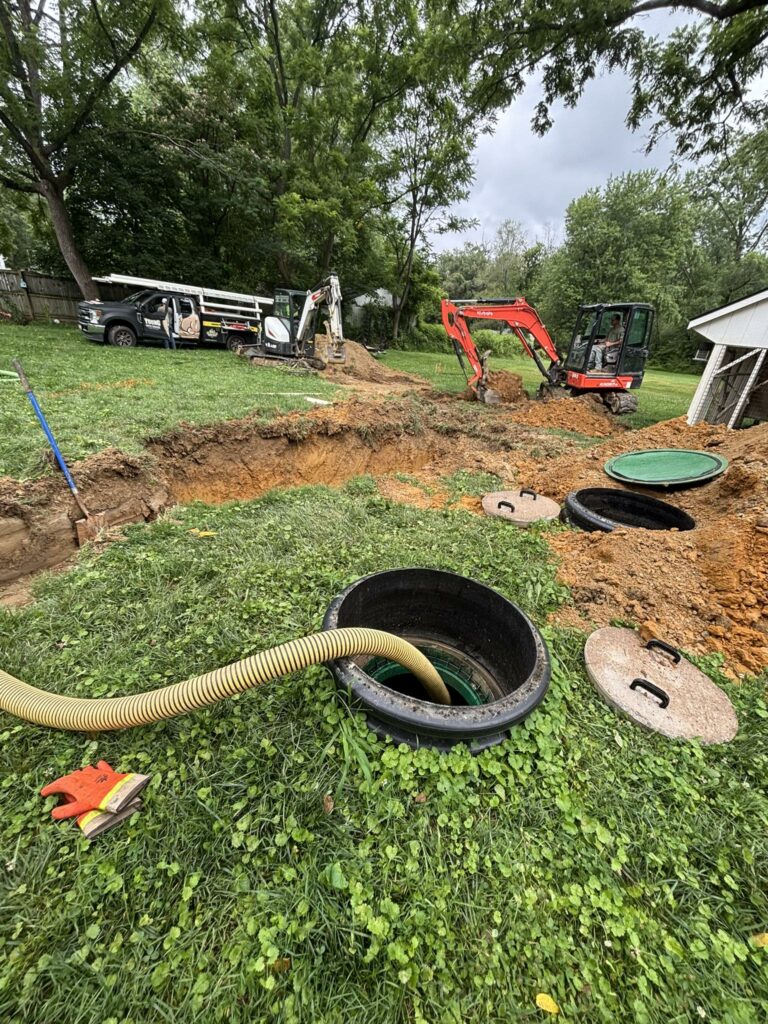

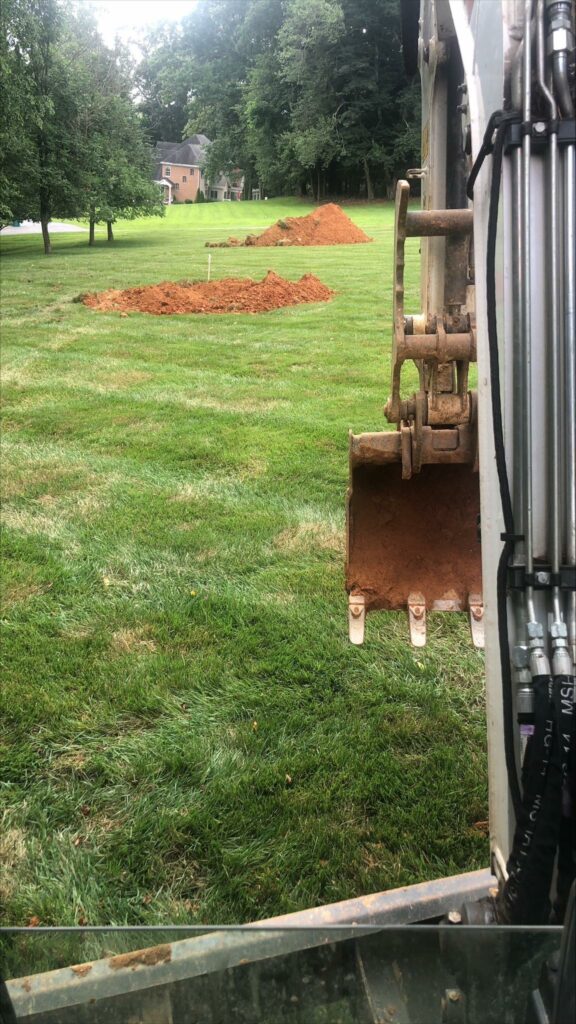
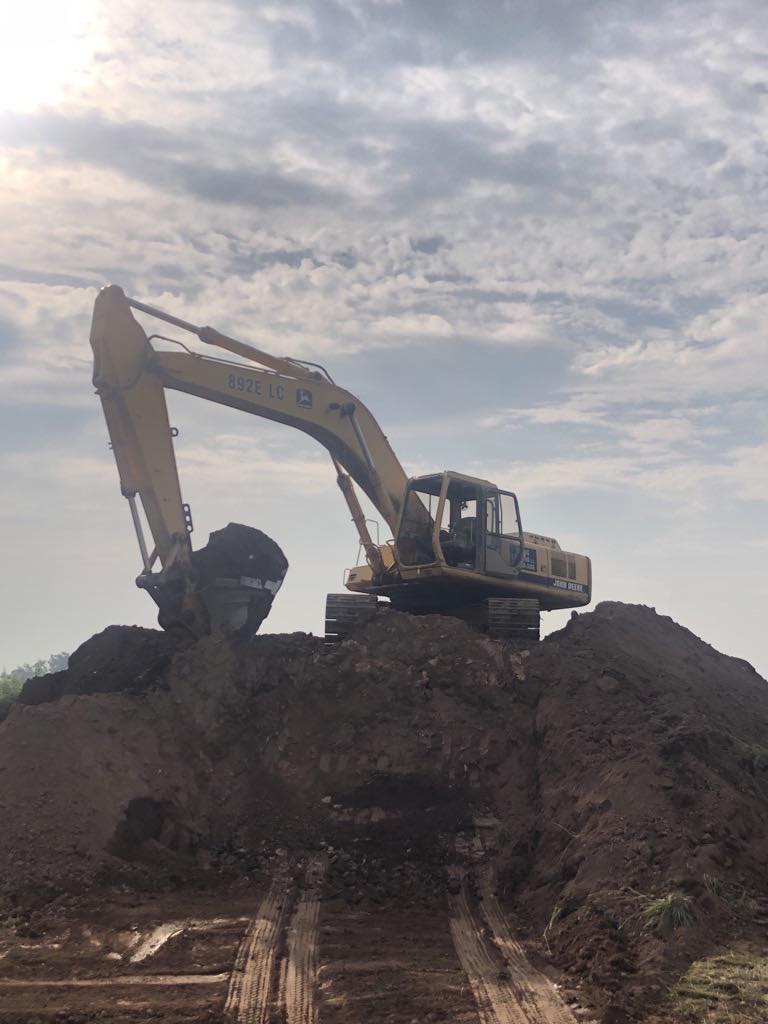
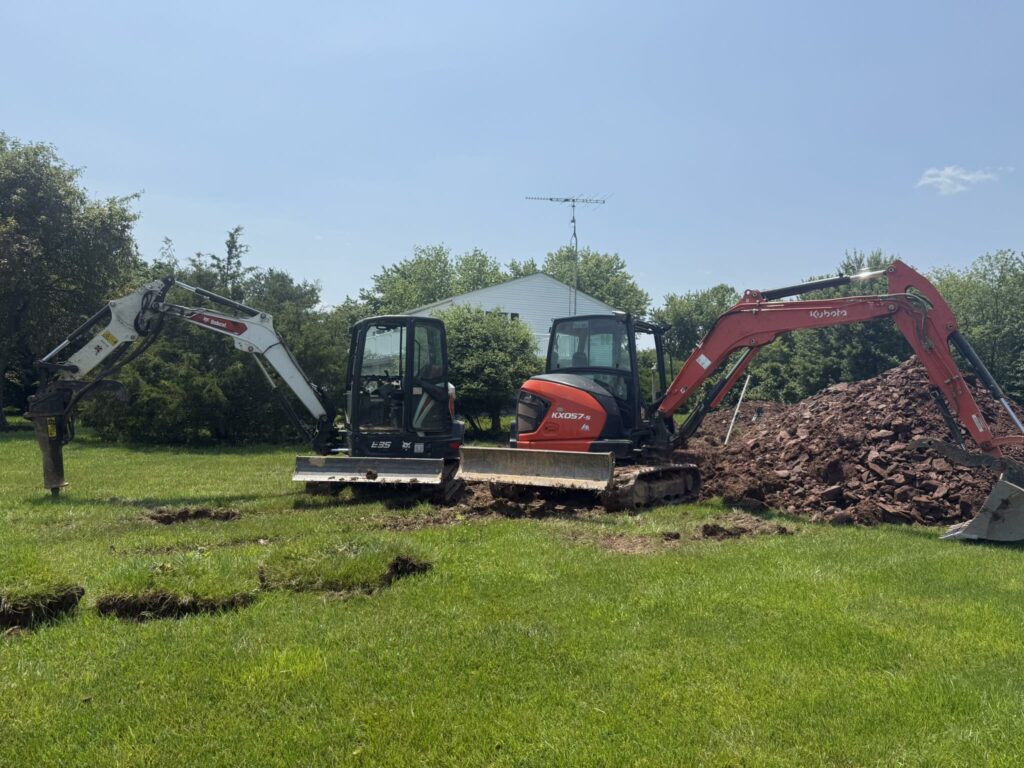
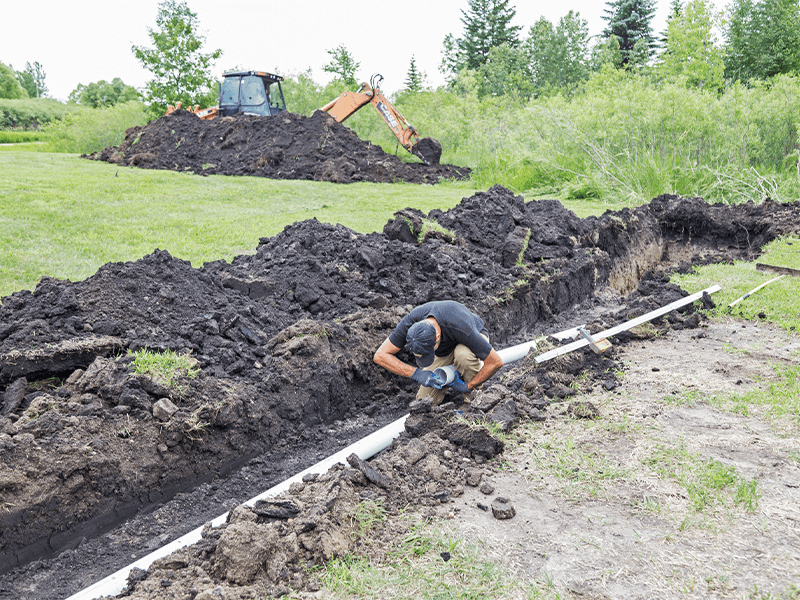
A healthy septic system is the silent hero of a home’s sanitation network, quietly managing waste and maintaining the balance of the local ecosystem. To extend its lifespan, careful use and regular maintenance are non-negotiable. More so, there are a number of dos and don’ts that homeowners must be aware of, which are fundamental to the biology and mechanics of the septic system.
A septic system is a home wastewater treatment system used when there’s no connection to a public sewer. It has two main parts: a septic tank and a drainage field. The tank separates solid waste from liquid, and the drainage field filters the liquid into the soil.
It’s important to have your septic tank inspected and pumped regularly. This keeps the system working efficiently and prevents solid waste from building up, which can cause backups and other problems. Homeowners should also be careful about what they put down their drains. Things like grease, oil, and certain chemicals can harm the bacteria in the septic tank. This can damage the system and lead to expensive repairs.
Using too much water can also be a problem for your septic system. It can overload the system and cause wastewater to escape into the ground, polluting the environment.
Regularly inspecting your septic tank is crucial for maintaining its health. Early detection of problems is key to preventing costly repairs. Professionals can provide valuable insights and recommendations for your system’s optimal performance.
Pumping your septic tank is also essential to remove accumulated solids. This process helps prevent overflows and backups, which can damage your property and the environment. Following a recommended pumping schedule is vital for your system’s efficiency.
Meanwhile, conserving water benefits your septic system. Fixing leaks and installing water-saving fixtures can significantly reduce strain on the system. Avoiding overload of the drain field is essential for its proper function.
It is important to educate your household members about proper septic system use. Only human waste and toilet paper should be flushed. Other items can disrupt the delicate balance of the system and hinder its ability to treat waste effectively.
Homeowners often overlook the impact of flushing chemicals, such as household cleaners, pharmaceuticals, and personal care products; these can disrupt the bacterial balance necessary for waste decomposition, burdening the septic system and leading to potential failures.
Another common misstep involves disregarding the space above the drain field by undertaking construction, driving over it, or planting deep-rooted vegetation; these actions can compact the soil or damage the piping, which can compromise the system’s ability to disperse water.
More so, ignoring the recommendations for septic tank pumping intervals invites sludge buildup, which can clog the system and result in repairs or a complete system replacement, as well as posing environmental risks from sewage leaching.
Skipping routine maintenance can also lead to unexpected and costly septic problems. Regular inspections allow for early detection and prevention of major issues.
When homeowners observe unusual odors, slow drainage, or water pooling around the drain field, prompt action is advisable. Early identification of problems enables timely intervention, preventing minor issues from escalating.
If you encounter persistent problems or system anomalies, consultation with a septic system professional is recommended. These experts can conduct comprehensive inspections and diagnostics to determine the root cause and provide appropriate solutions.
Homeowners may mistakenly attribute septic system issues to clogged pipes and resort to using chemical drain cleaners. These products can harm the microbial ecosystem essential for waste breakdown and should be avoided.
Unusually lush vegetation over the drain field may indicate a leak or system failure. In such cases, you should arrange for a professional evaluation to assess system integrity and prevent further environmental impact.
At Young Septic Services, we are committed to ensuring your septic system remains in optimal condition. Our expert team offers comprehensive maintenance plans, timely inspections, and efficient pumping services to safeguard your system against potential issues. Contact us today to schedule your next inspection and take proactive steps toward preserving your septic system and protecting your home and environment.
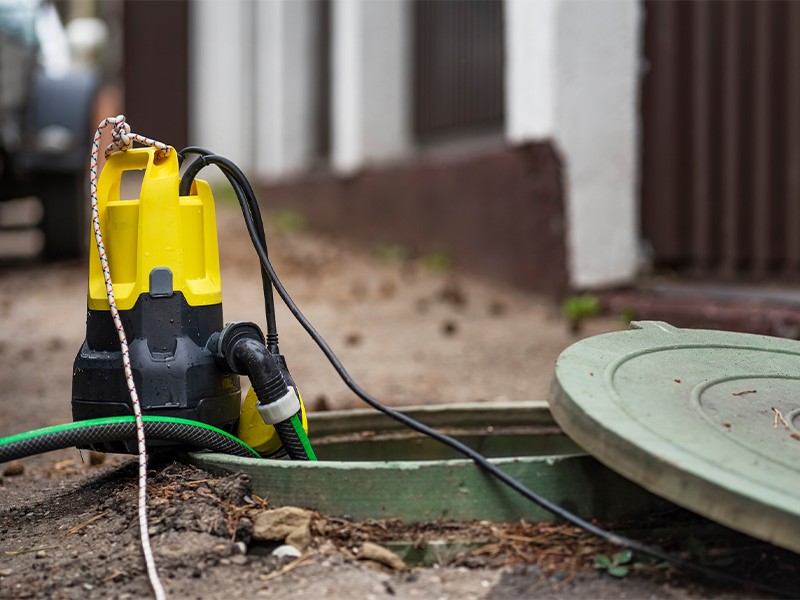
A properly functioning septic system remains largely invisible to homeowners, quietly treating and disposing of household waste beneath the earth’s surface. However, as the system deteriorates, telltale signs begin to emerge, indicating that attention is needed before more serious complications develop. It is essential that homeowners recognize these warnings early on to avert the inconvenience and potential costliness of a full system breakdown.
A slow drain might be the first sign your septic system needs attention. Drains that used to be fast suddenly take forever, and that’s a problem. Slow drains aren’t just annoying, they can damage your whole septic system. Your sinks, showers, and toilets all rely on clear pipes to move waste water. If those pipes get clogged up, sewage can back up or the system can overload.
The slower your drains get, the worse the problem can become. A blockage in the drain field, which is a key part of the septic system, can slow things down and lead to larger issues. The important thing is to be aware and act fast. If your drains are slowing down, call a professional plumber. They can find the cause of the clog and get your septic system working right again before it’s too late.
A smelly septic system is a sure sign something’s wrong. Normally, you shouldn’t smell anything around your septic tank or drain field. If you do smell sewage near the tank or drain field, it means the system isn’t working right. This could happen if the tank is full or there’s a crack in the system letting odors out.
The smell can even get inside your house. If your drains and toilets start smelling like sewage, it means the ventilation system for your septic tank isn’t working. This pushes those odors back up through your plumbing. As these will make your house unpleasant to live in and could be a sign of a bigger problem, it is advisable to call a plumber professional to get the system fixed.
Puddles around your septic tank or drain field are a bad sign. Normally, the water from your drains should soak into the ground easily. If it’s pooling instead, it means your septic system isn’t working right. Standing water can damage your lawn and the septic system itself. It can also create a breeding ground for bacteria.
Pooling water near the tank itself could signify a leak or a full tank. Meanwhile, the longer you wait, the worse the problem can get. You could end up with contaminated water or having to replace the entire septic system. Be observant and call a professional if you see anything unusual. They can fix the problem before it becomes a big mess.
Don’t be fooled by a super green lawn over your septic drain field. That extra lush growth might be a sign of trouble. A failing septic system can leak nutrients and moisture, acting like fertilizer for the plants. If the grass or plants right above your drain field are way greener and healthier than everything else, it could be because sewage is seeping up.
While this might seem good for the grass, it’s bad for your septic system. Consulting a septic system professional who can assess and address the concern is necessary to prevent escalating environmental and property damage.
Gurgling noises coming from your drains could be a sign of trouble with your septic system. This gurgling happens when air gets stuck in the pipes, and it often means something is blocking the flow. Don’t ignore these gurgling sounds, especially if they happen a lot. They could be an early warning that your septic system is clogged or malfunctioning.
Professional intervention when gurgling sounds arise can significantly mitigate the risk of full septic system failure. Plumbing specialists have the diagnostic tools and experience necessary to locate and resolve the issues causing these, ensuring the septic system returns to its silent, efficient operation.
At Young Septic Services, we understand the importance of timely intervention and expert care for your septic system. With our dedicated team of professionals, we offer comprehensive septic services to address any issues you may encounter. From routine maintenance to emergency repairs, we’re committed to ensuring the integrity of your system and protecting your property. Don’t wait until it’s too late—contact us today to schedule an inspection and keep your septic system running quietly & smoothly.
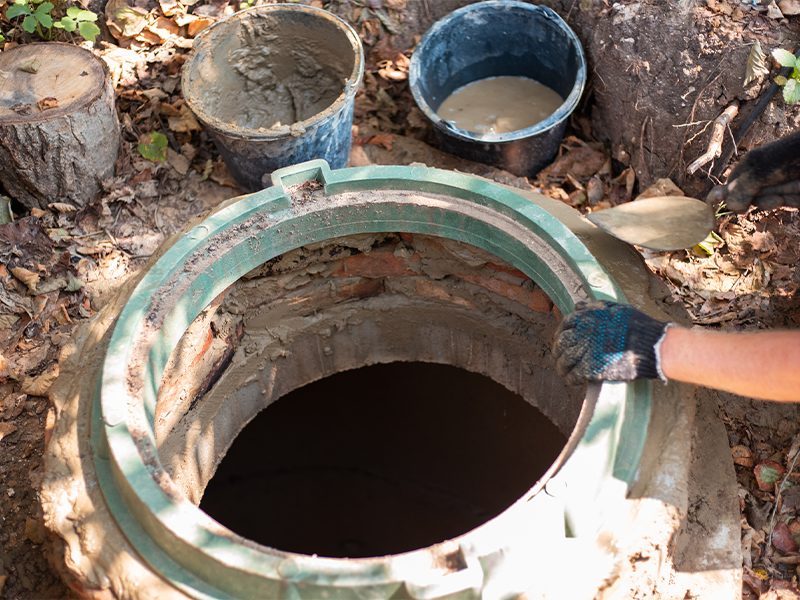
Homeownership brings immense joy and a sense of accomplishment. However, the buying process can sometimes feel overwhelming. One crucial aspect that often gets overlooked is the septic system. While not as glamorous as a new kitchen or a spacious backyard, a healthy septic system is fundamental to a well-functioning and comfortable home.
In this piece, we’ll help you understand what a septic inspection entails, as well as the importance of entrusting this task to skilled professionals.
At Young Septic Services, we’re committed to keeping your septic system functioning seamlessly. We take pride in educating homeowners about the integral parts and functions of their septic system. A septic system is more than just a tank; it’s a delicately balanced ecosystem that treats and disposes of household wastewater responsibly.
Regular septic inspections can help identify potential issues early on, extending the life of your septic system. Also, developing a keen eye for noticing signs of trouble can save you from inconvenient system failures, guaranteeing the health and safety of your household and environment. Remember, a well-maintained system is the cornerstone of a happy home.
At Young Septic Services, our experience has shown that overlooking regular septic inspections often leads to unforeseen complications. The neglect can result in backups, leaks, and other damages that not only disrupt your daily life but also bring about environmental hazards. Believing that skimping on septic inspections saves money could not be further from the truth.
In reality, the cost of emergency repairs or a full system replacement significantly overshadows the nominal fee of a routine check-up. Protecting the integrity of your septic system with regular inspections is a wise investment for your home’s waste management infrastructure.
Purchasing a home comes with its own set of considerations, one of the most critical being the state of the septic system. With a properly executed septic inspection, you get to notice hidden defects in the system, negotiate more affordable pricing based on the system’s condition, and enjoy peace of mind knowing the system is functional.
Beyond understanding the current condition, inspecting a septic system also helps you plan for future maintenance. It allows you to prepare a budget for necessary repairs and provides insight into the system’s expected lifespan. Lastly, the insights gained from a septic inspection before buying a property can aid in obtaining insurance or warranties. Many providers require proof of a well-maintained system before offering coverage. Ensuring you have a full report from Young Septic Services solidifies your standing with such institutions, promoting a smoother transition into your new home.
When Young Septic Services schedules a septic inspection, you can expect a comprehensive evaluation of your system’s condition. Our experts arrive equipped with the latest tools and technology to examine every component from the tank to the drain field. During the inspection, we’ll meticulously assess the sludge and scum levels, inspect for leaks, and ensure the baffles and tees are intact.
Our knowledgeable team conducts these inspections with an eagle eye, dedicated to catching even the most subtle signs of wear or damage that could compromise your septic system’s efficiency. Rest assured, after our thorough examination, we’ll provide you with a detailed report of our findings. This will include any maintenance or repair recommendations, tailored to your system’s unique specifications.
Maintaining or inspecting a septic system requires an expert with the right qualifications. Settling for anything less could lead to issues that may escalate into larger problems. At Young Septic Services, we understand the gravity of expertise and experience in this field.
First, we possess a deep understanding of all septic system components and their functions. Secondly, we bring a keen eye for detail that helps us identify early signs of wear and trouble spots. Then, we offer invaluable advice on upkeep and potential enhancements to extend the system’s life.
With Young Septic Services, you can rest easy knowing that our team exemplifies highly trained professionals who stand out in their field. Our specialists are not only licensed but continue to stay abreast of new technologies and septic care practices.
Your home deserves the highest possible septic care, and that’s exactly what Young Septic Services provides. With our comprehensive knowledge and dedication, we ensure your septic system sustains peak performance. Our team safeguards not just your septic system, but also the environment and your peace of mind. At Young Septic Services, we are more than just a provider; we’re your partner in maintaining a healthy, efficient septic system through clear communication and transparent practices.
Contact us today to give your home the best!
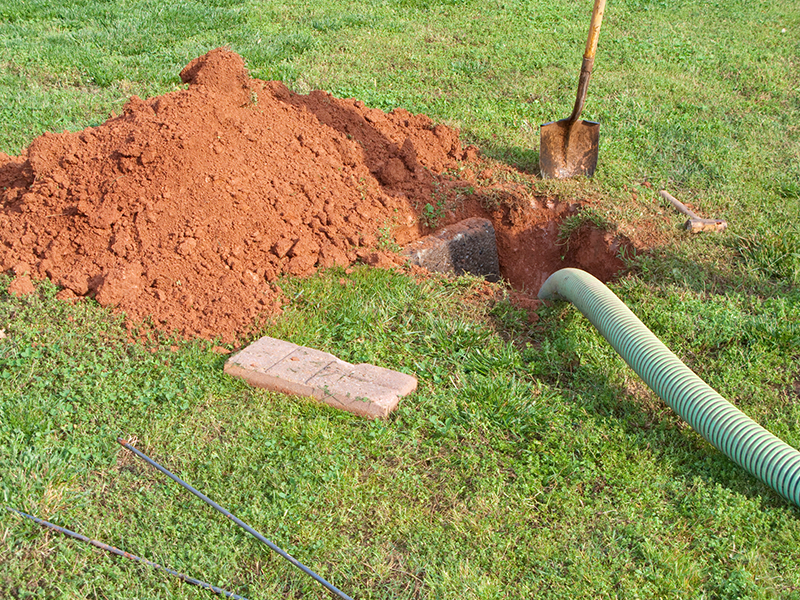
Figuring out how your home’s septic system works might not be the easiest but it’s an important aspect of maintaining a healthy, functional household. At Young Septic Services, we understand that the keys to a long-lasting septic system are regular care and timely intervention.
From understanding exactly how your septic system operates to recognizing the signs that it’s time for a pump-out, we’re here to guide you every step of the way. Want to save time, effort and money with timely septic plumbing and maintenance? Keep reading!
At Young Septic Services, helping you understand your septic system is the cornerstone of our philosophy. We believe every homeowner’s peace of mind starts with knowing how their home’s vital systems operate – particularly, the septic system that safely manages wastewater. It might seem a bit complex, but its inner workings can be easily understood when broken down.
The septic system is an intricate network of pipes that carries waste from your home to the septic tank, where the first stage of treatment begins. A well-maintained septic plumbing network is key to extending its lifespan and ensuring it functions efficiently. At Young Septic Services, we offer our clients regular inspections, maintenance and personalized guidance to help keep their septic system in top shape.
Septic pumping is an important service we offer to maintain the functionality of your septic system. As waste accumulates in your septic tank, it separates into three layers: solids settle at the bottom, oils and grease float to the top, and the middle layer consists of clearer water. Over time, the bottom layer of solids, also known as sludge, builds up and needs to be removed.
During septic pumping, we carefully remove this accumulated sludge from your septic tank. We recommend septic pumping as part of your regular septic system maintenance. Timing can vary depending on the size of your tank and the number of people living in your home, but generally, it should be done every three to five years.
There is no healthy septic system without a regular septic pumping routine. An overloaded system can lead to a range of problems. This proactive measure addresses these problems by preventing the sludge from reaching levels that can block water flow or damage the tank. Ensuring that your septic tank is pumped at appropriate intervals helps to:
Moreover, this regular maintenance protects not just your property but the surrounding environment. Overflow or leakage from a full septic tank can contaminate local water sources, harm wildlife, and contribute to pollution. By keeping your septic system in check, you’re playing a part in preserving the natural ecosystem.
Learning to notice the early signs that your septic system needs pumping can save you from the inconvenience and expenses of more serious problems down the line:
Clients who want to perform septic system maintenance are often faced with two choices – to tackle the job themselves or to engage the service of professionals. At Young Septic Services, experience has taught us that while the DIY approach may be tempting for its perceived cost-saving benefits, the process is lined with several pitfalls.
Tasks like understanding the layout of your septic system, safely accessing the tank, properly removing the waste, and responsibly disposing of it as per local regulations demand specific knowledge and equipment.
By choosing Young Septic Services, you’re not just hiring a pump truck; you’re gaining a team with deep knowledge in septic plumbing, adept at preventing complications during the pumping process and skilled at identifying any underlying issues within your system.
Preparing for the septic pumping process ensures it goes smoothly. At Young Septic Services, we advise clearing the area around your septic tank access lid. This not only facilitates easy access for our team but also minimizes the risk of damage to your property during the process.
Also, endeavour to keep a record of your septic system’s maintenance history. Providing us with details of previous pumpings, inspections, and any repairs helps us tailor our approach to meet the unique needs of your septic system.
Finally, we recommend scheduling your septic pumping at a time when it’s least disruptive to your household’s daily routine. Although our team at Young Septic Services works efficiently, ensuring the system is not in heavy use during our visit can prevent unnecessary complications.
At Young Septic Services, we begin the septic pumping process with a detailed inspection to assess the condition of your tank and the level of solids accumulation. Once we’ve established the state of your septic tank, our skilled team uses specialized equipment to remove the solids, liquids, and fats that have accumulated.
Following the removal of waste, we conduct a final check to confirm that your tank is in optimal condition for continued use. We also offer guidance on best practices for maintaining your septic system moving forward.
We operate with precision and care, maintaining the integrity of your septic system and minimizing any impact on your property. It’s a clean and effective process designed to restore your system’s functionality. Our approach is comprehensive and not only addresses the immediate needs of your septic system but also primes the tank to serve you for years to come.
Maintaining a healthy septic system is not just about preventing issues, it’s about improving the system’s longevity. At Young Septic Services, we believe that there’s no proper maintenance without regular septic pumping.
We also stress the importance of being mindful of what goes down your drains. Harsh chemicals can disrupt the biological process necessary for breaking down waste within your septic tank. Simple changes, such as not flushing these substances, can make a significant difference in preserving the balance of your septic system. Lastly, scheduling annual inspections with experts like us can help you catch on to potential problems before they escalate.
At Young Septic Services, we aim to provide homeowners with the knowledge and tools they need to maintain a healthy and efficient septic system. Our dedicated team is committed to not just meeting but exceeding your expectations with our comprehensive range of septic services.
We understand the importance of a well-functioning septic system for your home and we emphasize regular maintenance and professional inspection services to help you achieve this. Our partnership with our clients ensures that their septic systems operate smoothly, preventing potential issues and prolonging their lifespan. Contact us today to join the number of certified clients!
